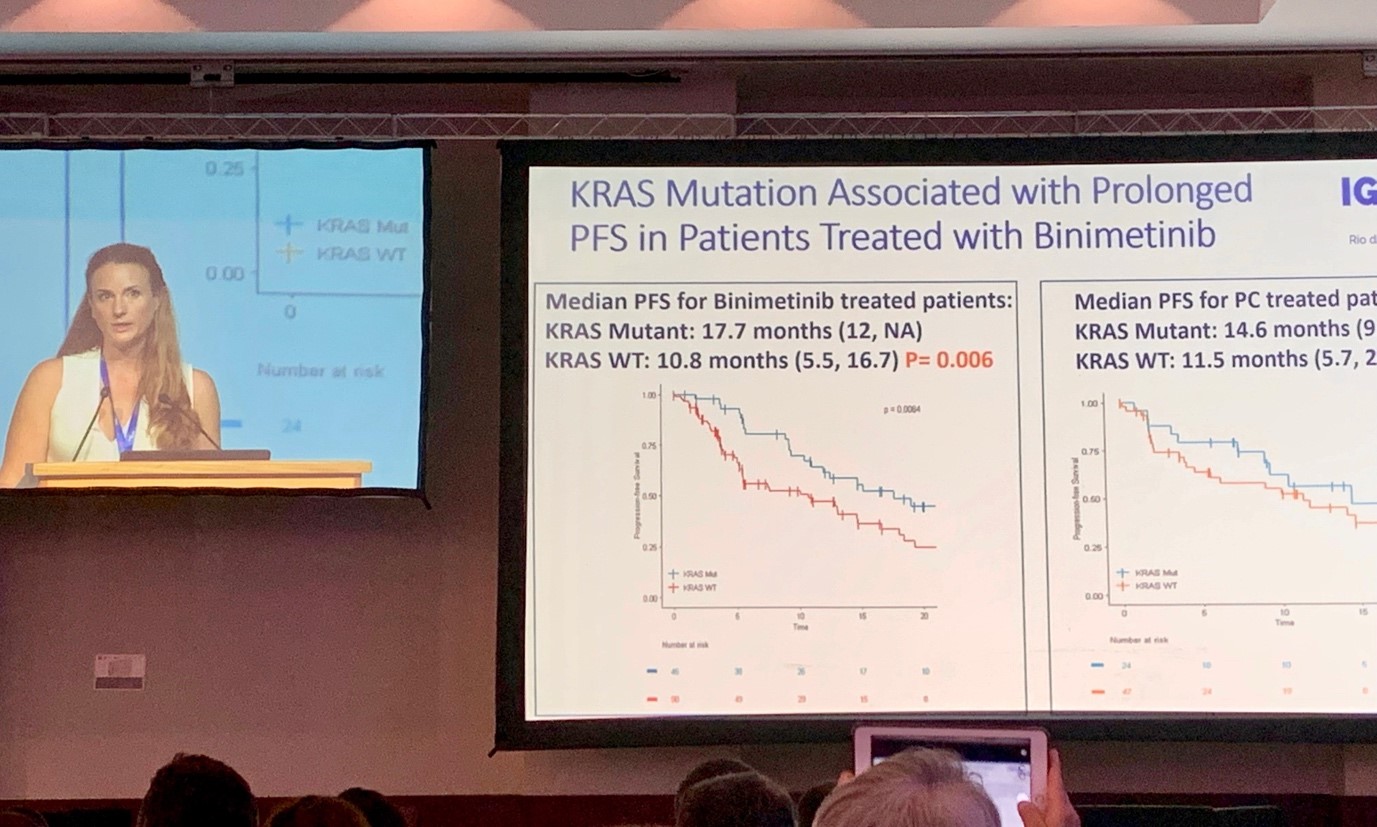IGCS & ESMO Meeting outcomes: Early research promising better outcomes for women
Early research promising better outcomes for women
I also wanted to share the results of a few other studies with you that were presented at the 2019 Annual Scientific Meeting of the International Gynecological Cancer Society, in Rio de Janeiro, Brazil recently. These studies may not change how we treat patients tomorrow but they may have a profound impact on the direction of the research that is required to increase a patients outcome.
Low-grade serous ovarian carcinoma is a poorly understood type of ovarian cancer. It is far less than high-grade serious carcinoma but still affects thousands of women worldwide. While it grows slower than the “typical” ovarian cancer, it only responds poorly to chemotherapy or any other treatment known so far. However, a new promising targeted treatment, called Binimetinib has shown to be very effective in a small subgroup of patients with known KRAS tumour mutations. Further randomized clinical trials need to prove that Binimetinib is effective to treat low-grade ovarian cancer patients with KRAS mutations before its general use can be recommended.
Another study looked at yet another subset of ovarian cancer; this time endometrioid ovarian cancer that resembles uterine cancer but arises from the actual ovary. It was shown that this cancer type displays genetic features similar to uterine cancer. One of these features (POLE) is always associated with excellent prognosis. In this particular study from Germany none of 17 patients with POLE mutation died from cancer. Further studies are required to ascertain this findings. If this holds true, patients with endometrioid ovarian cancer who show a POLE mutation could be spared chemotherapy and would still do well in the long-term.
Finally, one study has shown that DNA from gynaecological cancers can be found in the blood stream, even if the cancers are found and treated at its earliest possible stage. This confirms the direction of research we currently take at the Queensland Centre for Gynaecological Cancer Research as part of the feMMe Trial. Pending funding we will examine tumours’ DNA to obtain very relevant information. We will not only be able to determine if tumour DNA can be found in the blood stream but we will also be able to determine what genetic build the tumour has, which will inform if the tumour is inherited but also how we can treat patients as effectively as possible with the least harm in the future.

If you are interested in supporting gynaecological cancer research, please visit http://bit.ly/2KJrk2L for more information on our upcoming Larapinta Trail fundraising trek.
